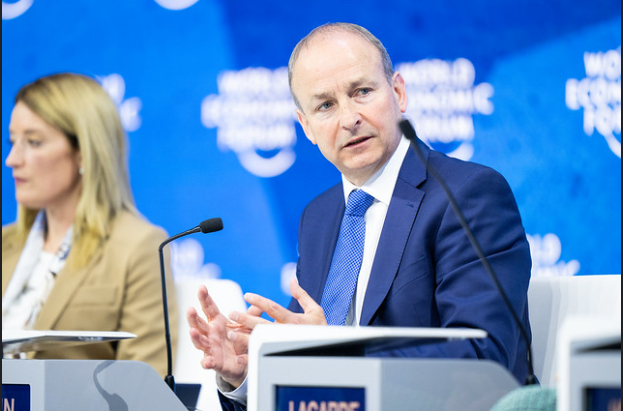Dublin, Ireland – Taoiseach Micheál Martin has described cyber warfare as the most pressing national security threat facing Ireland, as the European Commission launches legal proceedings against the country over its failure to fully implement EU counterterrorism laws.
Speaking in the context of rising geopolitical tensions and evolving security risks across Europe, Mr. Martin acknowledged that the country must take urgent steps to bolster its security and defense infrastructure. “It is clear, in light of the worsened security situation in Europe and significant changes in the nature of the security challenges we and our partners face, that accelerated and increased investment in the State’s security and defense services will be required in the coming period,” the Taoiseach stated.
His remarks come as Brussels refers Ireland to the European Court of Justice, alleging persistent non-compliance with the EU Directive on Combating Terrorism. The directive, adopted in 2017, mandates that member states criminalize a range of terrorism-related offenses including travelling abroad for terrorist purposes, financing terrorism, and glorifying terrorist acts online. Ireland is one of the last EU member states yet to fully transpose the directive into national law.
Expanding Threat Landscape
In outlining the country’s security priorities, Mr. Martin pointed to an increasingly complex and multifaceted threat environment. He identified the principal threats as:
- Cybersecurity breaches targeting critical infrastructure;
- Sabotage of subsea communication cables, which form the backbone of transatlantic internet connectivity;
- Hybrid attacks, blending conventional and cyber operations;
- Disinformation campaigns, particularly on social media platforms;
- Traditional terrorist activity, though he emphasized that the likelihood of such attacks on Irish soil remains “low”.
Despite the relatively limited domestic terror risk, Martin stressed the urgency of adapting to the rapidly shifting global threat landscape, particularly given Ireland’s economic reliance on digital infrastructure and its hosting of numerous major data centers.
EU Legal Action Raises Pressure
The European Commission’s decision to escalate legal action reflects mounting frustration over Ireland’s delayed legislative progress. The infringement case could result in significant financial penalties and reputational damage for Ireland within the EU if it is found in breach of its treaty obligations.
In response, the Irish government has indicated that it is preparing emergency legislation aimed at addressing the compliance gap. However, legal experts have warned that the failure to act in a timely manner has already undermined Ireland’s standing as a cooperative partner on EU security matters.
Defense and Security Spending Under Review
The government is also facing calls from defense analysts and security experts to significantly ramp up its investment in cyber defense capabilities. Ireland currently spends less than 0.3% of GDP on defense, one of the lowest rates in the European Union.
Mr. Martin’s comments suggest a shift in the national security posture, with cyber resilience now viewed as a central pillar of Ireland’s defense strategy. “Cyber warfare does not recognize borders,” one senior defense official noted. “Ireland’s strategic vulnerabilities – from data infrastructure to neutrality – must be addressed with both urgency and foresight.”
Looking Ahead
With the EU court proceedings underway and the domestic security landscape evolving rapidly, Ireland is under intensifying pressure to modernize its counterterrorism framework and national defense strategy.
While the immediate risk of a conventional terrorist attack remains low, experts warn that complacency could leave the country exposed to other forms of asymmetric warfare, particularly in the digital domain.
The Taoiseach’s acknowledgement of cyber warfare as the primary threat is being interpreted as a call to action — one that may shape the government’s legislative and budgetary priorities in the months ahead.



